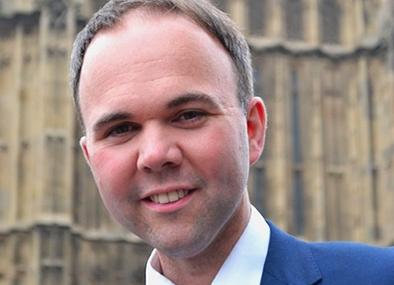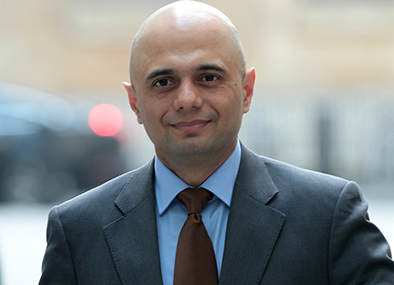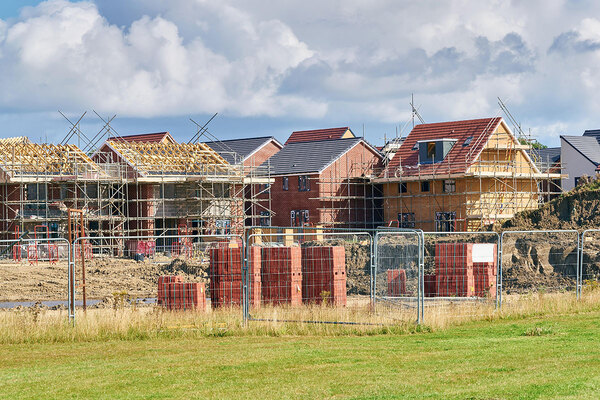Chancellor confirms £1.4bn government grant for mix of tenures
A revised affordable homes programme will provide an extra £1.4bn of funding that can be used for a range of housing types including affordable rent, shared ownership and rent to buy, it was announced today.
Chancellor Philip Hammond said in his autumn statement that government ‘will relax restrictions on government grant to allow a wider range of housing-types’.
‘This commitment to housing delivery represents a step-change in our ambition to increase the supply of homes for sale and for rent, to deliver a housing market that works for everyone,’ he said.
Housing minister Gavin Barwell tweeted that today’s statement ‘increases the affordable housing budget by £1.4bn’ and that London will receive a share of this additional money.
Mr Barwell tweeted: ‘Crucially affordable housing programme will now fund all tenures - affordable rent + shared ownership + rent to buy.’
The announcements came alongside confirmation of a £2.3bn Housing Infrastructure Fund, which will be used for projects such as roads and water connections that will support the construction of up to 100,000 new homes.
Mr Hammond said London will receive £3.15bn for affordable housing from 2016-2021 to support 90,000 homes.
Plus, there was the announcement that £1.7bn would be used to speed up the construction of new homes on public sector land.
There will also be a regional role out of voluntary right to buy pilot for housing association tenants, plus a new taper on universal credit.
Meanwhile, the Housing White Paper will be brought forward ‘in due course’ to address these longer-term challenges.
The move to a more flexible £1.4bn programme reverses former chancellor George Osborne’s reconfiguration of central funding a year ago at the 2015 spending review towards ownership.
There was also no mention of starter homes in today’s announcements.
Chancellor Philip Hammond said: ‘The challenge of delivering the housing we so desperately need in the places where it is currently least affordable is not a new one. But the effect of unaffordable housing on our nation’s productivity makes it an urgent one.’
He added: ‘One of the biggest objections to housing development is often the impact on local infrastructure. So we will focus government infrastructure investment to unlock land for housing.’
He said the post-Budget changes to welfare and housing policies cost the exchequer £8.6bn over the forecast period, and that expected ONS classification changes have added £12b since the budget.
Scotland, Wales and Northern Ireland will receive more money which can be spent on infrastructure projects, with each devolved administration deciding where this will be spent. This will be an increase of over £800m for the Scottish Government, over £400m for the Welsh Government and over £250m for the Northern Ireland Executive.
UK guarantees, the scheme whereby the government uses its balance sheet to underwrite funding for major infrastructure, has been extended to 2026. But there was no mention of the £10bn housing guarantees scheme, which has included both the affordable housing guarantee scheme and PRS guarantee scheme.
Mr Hammond also confirmed that the government has ‘no plans’ for further welfare savings measures in this parliament beyond those already announced.
There will however be a new taper for universal credit, which the government said will benefit 3 million households. It currently says that for every £1 earned after tax above an income threshold, a person has their benefit award reduced by 65p and keeps 35p. They will now keep 37p for every £1, from April 2017.
He also said the government would be rolling out a new series of pilots, which will test out the scheme.
In addition and subject to consultation, letting agents will no longer be able to charge renters fees, for example when they sign a new tenancy agreement. This will stop tenants being hit with fees averaging £223 per tenancy.
Welcome change
David Montague, group chief executive of L&Q, said: ‘Today, government recognised the scale of the housing challenge. We asked for flexibility, investment and a long term plan, and government has listened. We must now get on with the job of building the homes that Britain needs.
‘The Mayor of London should also be congratulated for securing the very best deal for the capital.’
Tony Oakley, head of social housing at Lloyds Bank Commercial Banking, said: ‘The sector will welcome the additional £1.4bn from the chancellor – as well as the broader sentiment of supporting housing supply – but the reality is housing associations are more adept than ever at raising finance.
‘One virtuous by-product of the pressure social housing providers have been put under by rent reductions, welfare reform and other policy changes in recent years is that they have sought to raise finance from a diverse range of sources. In particular, the sector is increasingly confident in attracting funding from capital market investors. Meanwhile, the demand for bank lending is also rising, suggesting registered providers are continuing to grow in confidence and plan to boost their development programmes.’
David Orr, Chief Executive at the National Housing Federation, said the government ‘is absolutely right to see housing infrastructure as critical to improving the nation’s productivity’.
‘Increased flexibility and extra investment will give housing associations the freedom and confidence to build even more affordable homes, including for rent, more quickly across the country.
‘This extra investment in affordable housing demonstrates the strong relationship that housing associations have with the new government.’
He also welcomed the change to tapers on universal credit and said they look forward to working with government and our members to develop a regional voluntary Right to Buy pilot.
Mr Orr added: ‘However, we will be raising our concerns with government about the changes to the local housing allowance cap for those receiving universal credit from 2019.’
Terrie Alafat CBE, chief executive of the Chartered Institute of Housing, said it ‘is a significant step in the right direction’.
She said: ‘The measures announced today demonstrate this is a government which recognises housing is a key part of our infrastructure and that it brings economic benefits. It also shows this is a government which is serious about its commitment to help the many thousands of people struggling to get access to a decent, affordable home.’
‘We would, however, have liked to see more to support people who need housing the most, with more funding diverted specifically to support social rents and a strategic rethink on welfare measures we believe make housing inaccessible to a significant number of individuals and families.’
RELATED









